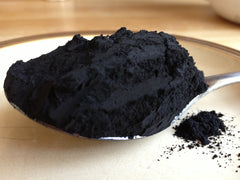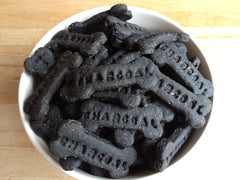healthy natural treats & chews for your dog | Gifts & acessories for you | free UK delivery for orders over £45
healthy natural treats & chews for your dog | Gifts & acessories for you | free UK delivery for orders over £45
September 09, 2013
You're sitting at home chatting with some friends when suddenly a bad smell makes everyone grown in horror and go running to open the window. What is that smell? Where does it come from? Everyone denies being the culprit and then all eyes turn to the dog sprawled on his bed looking innocently at you. The owner of the smelly fart has been found! Sound familiar?
 Embarrassing as this might be, it's no uncommon. Wind, or flatulence can be quite a problem in dogs with some breeds being more prone than others. In fact, we were recently told by a vet that as a general rule of thumb, breeds which naturally carry their tails upright appear to suffer more from bouts of wind than those whose tails hang low.
Embarrassing as this might be, it's no uncommon. Wind, or flatulence can be quite a problem in dogs with some breeds being more prone than others. In fact, we were recently told by a vet that as a general rule of thumb, breeds which naturally carry their tails upright appear to suffer more from bouts of wind than those whose tails hang low.
Flatulence in dogs is caused by bacteria in the digestive tract breaking down food items which then produces the smelly gasses which we find so offensive. It doesn't necessarily mean your dog has a serious health problem and there are a number of self-help measures we can do to help minimise these embarrassing doggie botty burps in the first instance.
Lots of exercise helps move the gas through your dog's intestines. Exercise also help stimulate a bowel movement, so your dog is less likely to need to pass wind when they return home.
Avoid feeding your dog unhealthy titbits like processed and sugary snacks or table scraps. The quality of food you give your dog is also important. Cheap food is often full of fillers and by-products, so if possible, consider changing to a better quality food made from natural ingredients. Be sure to read the labels and know exactly what your dog is consuming. The more rubbish goes in, the more likely you are to notice what comes out!!
Some food should be avoided. Soya beans are high in proteins which dogs may find difficult to digest and which will therefore produce a lot of gas in their digestive tract. Wheat is high in gluten and also indigestible to dogs. Other foods which are high in protein include dairy, peas and beans.

When dogs eat too fast they can ingest air which will then be expelled as flatulence. You can slow down the rate which your dog gobbles their food by using a dog bowl which has been specially designed to make it difficult for dogs to take large mouthfulls, or by placing a ball in their feed bowl as an obstacle.
Feed your dog twice daily. Breaking down their nutritional intake into two smaller portions instead of one large meal gives your dog more time to digest their food properly.
If your dog suffers from regular bouts of flatulence and loose stools, there are specifically designed probiotics which help encourage healthy bacteria to grow in the intestines. Natural yoghurt is also a great source of bacteria which is good for your dog's stomach and will help them digest their food.
Naturally, if you dog's bouts of flatulence continues for a long period despite the self-help measures above, or you're worried about the healthy of your dog, then you should taken them to the vet for a check up.
I hope you've found this useful and it's helped to alleviate some of the myths and concerns you may have had about your dog's smelly wind problem. it's not as uncommon as you might have thought!
*********************************************************************

We use a top quality 100% natural pharmaceutical grade activated charcoal which is completely safe to eat (not the kind of charcoal you'd use in your BBQ!). Fed regularly to your dogs, our charcoal biscuits can help maintain good health and digestion by absorbing toxins which can be found in the gut and so reducing windy and embarrassing wiffy botty burps!
For more information, take a look at our Charcoal & Aniseed dog biscuits.
Comments will be approved before showing up.
March 29, 2023
April 01, 2016

January 16, 2015
 Taffy was diagnosed with Multifocal Myelitis GME - an acute inflammatory disease of the central nervous system - last year. I've written this story of Taffy and his autoimmune disease in the hope that it might help others recognise the symptoms and know when to seek veterinary treatment because early diagnosis of this condition means the difference between life and death!
Taffy was diagnosed with Multifocal Myelitis GME - an acute inflammatory disease of the central nervous system - last year. I've written this story of Taffy and his autoimmune disease in the hope that it might help others recognise the symptoms and know when to seek veterinary treatment because early diagnosis of this condition means the difference between life and death!